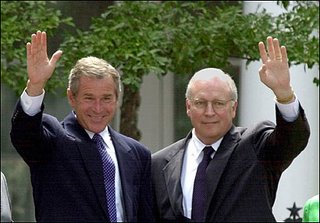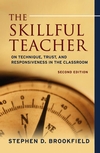Apparently, a historical view of the issue of executive encroachment into legislative prerogatives reaches back considerably before the signing statements of current President Bush. Interestingly, the Cato Institute issued a report in 1999, Executive Orders and National Emergencies: How Presidents Have Come to "Run the Country" by Usurping Legislative Power link. Note the date, still during the Clinton presidency. See also the Cato analysis of The Problem with Signing Statements, link, which also appeared as an essay in the Chicago Tribune, in July, 2006. You can see an interesting webography on the issue of separation of powers at Cato, here.
Another historical survey of presidential powers, from The Daily Reckoning, here, dated 2006, "The Limits of Presidential Power: All the President's Power," by By Thomas E. Wood Jr. This site describes itself as libertarian.
The American Bar Association's bi-partisan committee studied the effect of presidential signing statements link, in July, 2006. See here for a link to the full text of the report and information on the taskforce members.
In-depth law review article at 52 Duke Law Journal 403, Mark J. Rozell, "Executive Privilege Revived?: Secrecy and Conflict During the Bush Presidency," link.
A list of law review articles on the topic of presidential powers from the American Constitution Society, here.
And, at ConsortiumNews.com (which bills itself as independent investigative reporting since 1995), there are a variety of essays on the topic of the new "imperial presidency" model of Bush-Cheney:
Roberts and the Apex of Presidential Power link
Bush's Absolute Power Grab, here. This essay covers the signing into law of the Military Commissions Act, which was blogged in-depth here at OOTJ here.
More on this troubling act, here and here, at ConstitumNews, from Robert Parry. Here is a webography from ConsortiumNews on the "Imperial Bush," link.
For another discussion on the limits of presidential power, see Legal Affairs' Debate Club dialog between Berkely law Prof. John C. Yoo and Prof. Neil J. Kinkopf of Georgia State University College of Law, link from November, 2005.
Prof. Yoo writes at the Heritage Foundation, on "Energy in the Executive: Re-examining Presidential Power in the Midst of the War on Terrorism," last April, here.
Prof. Kinkopf writes more as well, on Jurist at Pitt Law, in March, 2006, link, on statutes and presidential power.
CQ Researcher, in 2002, issued this report, Presidential Power v.12-40. See also CQ link to "Constitutional Powers of the President."
This report at SaveTheCourt.org, under the aegis of the conservative People for the American Way. Titled, "PRESIDENTIAL POWER, CONGRESSIONAL AUTHORITY, AND ROLE OF COURTS," the report is looking at the confirmation of Justice Alito. Another article looking at the same issues in the context of Alito's confirmation, from the L.A. Times, at the Pew Forum on Religion and Public Life website, here.
On Findlaw's Writ, John Dean writes here on "The Problem with Presidential Signing Statements: Their Use and Misuse by the Bush Administration," in January, 2006. Dean analyzes the effect of the signing statements.
From a comment on Slashdot, a collection of quotes dated 2004, from past presidents on their view of executive power, here, compiled by Tod Landis.
An essay on the Hamdan v. Rumsfeld decision as the "most important decision on executive power, ever," at The Nation, here, July, 2006.
A brief article from IndyMedia, here, and a referral to the New Yorker article of July, 2006, here, by Jane Mayer, "The Hidden Power: The legal mind behind the White House’s war on terror." That mind belongs to David S. Addington, Vice-President Cheney’s chief of staff and his longtime principal legal adviser.
At The American Conservative, an article on Bush's use of signing statements here, from July, 2006, "Power of the Pen: The president uses signing statements to decree which laws apply to him ," by James Bovard.












